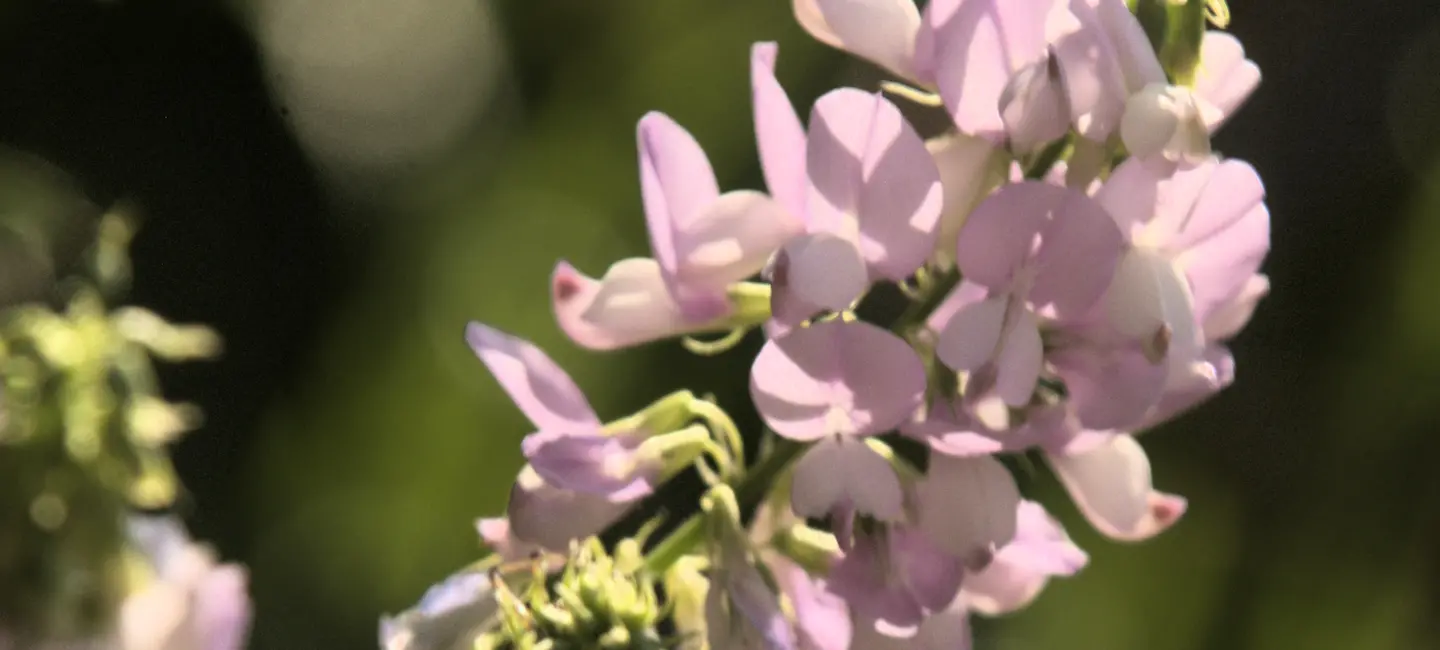
Goat's rue is a plant. The parts that grow above the ground are used to make medicine. Be careful not to confuse goat's rue (Galega officinalis) with rue (Ruta graveolens).
Goat's rue is used for diabetes, breast-feeding, and many other purposes, but there is no good scientific evidence to support its use.
Is It Effective?
NatMed Pro rates effectiveness based on scientific evidence according to the following scale: Effective, Likely Effective, Possibly Effective, Possibly Ineffective, Likely Ineffective, Ineffective, and Insufficient Evidence to Rate.
- Breast-feeding. Some mothers have reported improvements in milk production after taking goat's rue with other vitamins and minerals, but this has not been studied in clinical trials.
- Diabetes.
- Digestive problems.
- Other uses.
More evidence is needed to rate the effectiveness of goat's rue for these uses.
Is it Safe?
Goat's rue contains a chemical that may lower blood sugar in a test tube. But it is unclear if goat's rue has this effect when taken by people.
When taken by mouth: There isn't enough reliable information to know if goat's rue is safe or what the side effects might be. No harmful effects have been reported in humans, but fatal poisoning has occurred in grazing animals that ate large quantities of goat's rue.
Special Precautions & Warnings:
Pregnancy and breast-feeding: There isn't enough reliable information to know if goat's rue is safe to use when pregnant or breast-feeding. Stay on the safe side and avoid use.
Bleeding conditions: Goat's rue might slow blood clotting and increase the risk of bleeding. In theory, goat's rue might make bleeding disorders worse.
Surgery: Goat's rue might affect blood sugar levels. There is concern that it might interfere with blood sugar control during and after surgery. Stop using goat's rue at least 2 weeks before a scheduled surgery.
Medications that slow blood clotting (Anticoagulant / Antiplatelet drugs)
Interaction Rating=Moderate Be cautious with this combination.
Goat's rue might slow blood clotting. Taking goat's rue along with medications that also slow blood clotting might increase the chances of bruising and bleeding.
Some medications that slow blood clotting include aspirin, clopidogrel (Plavix), dalteparin (Fragmin), enoxaparin (Lovenox), heparin, ticlopidine (Ticlid), warfarin (Coumadin), and others.
Herbs and supplements that might slow blood clotting: Goat's rue might slow blood clotting. Using goat's rue with other herbs and supplements that can slow blood clotting might increase the risk of bleeding in some people. Some of these herbs and supplements include angelica, danshen, garlic, ginger, ginkgo, red clover, turmeric, willow, Panax ginseng, and others.
There are no known interactions with foods.
The appropriate dose of goat's rue depends on several factors such as the user's age, health, and several other conditions. At this time there is not enough scientific information to determine an appropriate range of doses for goat's rue. Keep in mind that natural products are not always necessarily safe and dosages can be important. Be sure to follow relevant directions on product labels and consult your pharmacist or physician or other healthcare professional before using.
Faux-Indigo, French Honeysuckle, French Lilac, Galega, Galéga, Galéga Officinal, Galega bicolor, Galega officinalis, Galega patula, Galegae Officinalis Herba, Geissrautenkraut, Goat's Rue Herb, Italian Fitch, Lavanèse, Lilas d'Espagne, Lilas Français, Rue-de-Chèvre, Rue des Chèvres, Sainfoin d'Espagne.
Information on this website is for informational use only and is not intended to replace professional medical advice, diagnosis, or treatment. While evidence-based, it is not guaranteed to be error-free and is not intended to meet any particular user’s needs or requirements or to cover all possible uses, safety concerns, interactions, outcomes, or adverse effects. Always check with your doctor or other medical professional before making healthcare decisions (including taking any medication) and do not delay or disregard seeking medical advice or treatment based on any information displayed on this website.
© TRC Healthcare 2024. All rights reserved. Use and/or distribution is permitted only pursuant to a valid license or other permission from TRC Healthcare.
